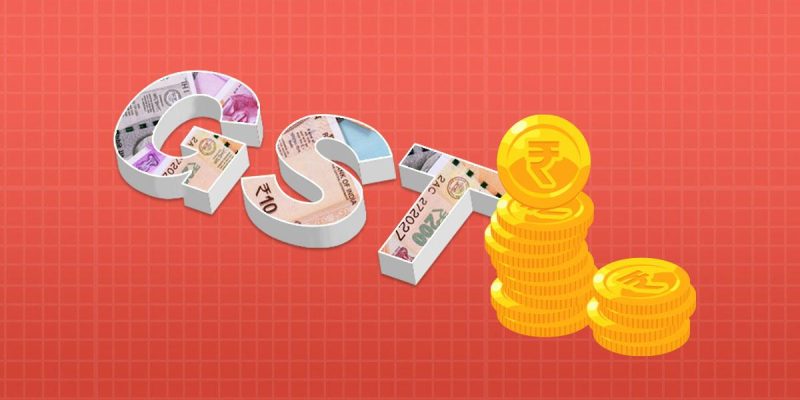The Goods and Services Tax (GST) Council has decided that no GST will be charged on 14 items which primarily consist of food items such as fruits, vegetables, and other food grains. This move is seen as a major relief to the common man as these are essential items used by people on a daily basis.
What is GST Council?
The GST Council is an institutional framework set up by the Government of India to ensure consistent implementation of the Goods and Services Tax (GST). It is established under Article 279A of the Indian Constitution, and consists of representatives from the Union Government and all 29 states of India.
The GST Council is responsible for making recommendations to the Union and state governments regarding various tax laws and policies related to GST. The GST Council also makes recommendations on any changes to be made in the GST rate structure, and the exemption or inclusion of certain items under the GST regime. It also periodically reviews the implementation of GST across the country and provides guidance for the same.
The GST Council has the power to make decisions on the rate of tax on any item, the exemption or inclusion of any item, and other matters related to the implementation of GST. The GST Council is headed by the Union Finance Minister and comprises representatives of all 29 states. The decisions of the GST Council are binding on all the states in India, and any changes made to the GST rate structure must be implemented uniformly across the country.
The 14 Items Exempt From GST Tax
The 14 Items Exempt From GST Tax include essential everyday items that are essential for the general public. These items are exempt from GST, meaning no tax will be charged on them. This list includes items such as food grains, meat, fish, and eggs, as well as items used for educational purposes such as textbooks, notebooks, and stationary. Other items on the list include items of special importance, such as religious books and scriptures, and items of medical necessity, such as wheelchairs and hearing aids. Several items used in agriculture, such as seeds and fertilizers, are also exempt from GST.
Additionally, several items used in housing and construction, such as building bricks, are exempt from GST. These exemptions are meant to help reduce the financial burden on the public, while still allowing them to access the items they need. The GST Council has done an excellent job in ensuring that essential items are exempt from GST and no tax will be charged on them.
Impact of the Exemption on Prices
The impact of the GST Council’s decision to exempt 14 items from GST is that it will result in a decrease in the prices of these items. This means that consumers can save money when they buy these items, as they will no longer have to pay the GST that is currently imposed on them. This is a major boon for consumers, as the GST Council has ensured that prices of basic items remain affordable for everyone.
This is particularly beneficial for those who are on a tight budget, as they can now purchase these items without having to pay the additional GST. Furthermore, it is also beneficial for businesses, as they can now sell these items at a lower price, thus increasing their sales and profits. Overall, this decision of the GST Council is a win-win situation for both consumers and businesses.
Benefits of the Exemption
The most significant benefit of this exemption is that it will help to reduce the cost of living. This is especially true for those who are struggling financially due to the economic crisis caused by the pandemic. With GST exemption, essential items such as masks, sanitizers, and vaccines will become more affordable. This will enable people to purchase them even if their income is limited.
Furthermore, this exemption will also benefit businesses. By removing the GST burden, businesses will be able to reduce their costs and remain competitive. This will help them to remain afloat during these difficult times and protect jobs.
Overall, the GST Council’s decision to exempt 14 items from GST is a wise move. It will benefit people and businesses alike, as it will reduce the cost of living and help businesses remain competitive. This is a much needed move during these difficult times and will help people and businesses to rebuild their lives.
Challenges Faced in Implementing the Exemption
The implementation of the Goods and Services Tax (GST) in India has been a challenge for both the government and the citizens. In order to make the taxation system easier and fairer, the GST Council recently announced that GST will not be charged on 14 items. Although this is a step in the right direction, there are still many challenges in implementing this exemption.
One of the major issues is the need to educate both consumers and businesses about the new rules. Since GST is a unified tax, it can be difficult for consumers to understand which items are exempt from GST and which are not. This confusion can lead to non-compliance and non-payment of taxes. Moreover, businesses may lack the resources to properly implement the new regulations.
It can be difficult for businesses to know which items are exempt from GST and they may even be unaware of the new regulations. This can lead to incorrect invoices and incorrect pricing of goods and services. In addition, businesses may have to re-engineer their IT systems to comply with the new regulations. All these challenges highlight the complexity of implementing the GST Council’s exemption on 14 items.
Conclusion
The GST Council has declared that 14 items will not be subjected to GST. These items include items such as food grains, fresh vegetables, milk, natural honey, fresh fruits, flour, besan, bread, fresh meat, fish, chicken, eggs, curd, and salt. This decision has been taken to ensure that essential commodities remain affordable to the common man and also to ensure that there is no additional burden on the people. This decision is likely to benefit millions of people in India who rely on these items for their daily sustenance.





















Comments